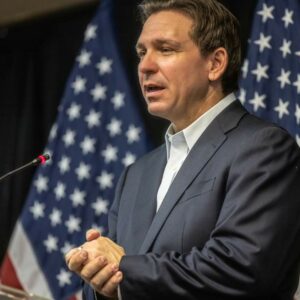What does Ron DeSantis have in common with Elizabeth Warren and Bernie Sanders? They all support the silly idea of importing drugs from Canada to save money.
The DeSantis plan announced in November 2020 would import Canadian drugs for state agencies such as Medicaid, prisons and other public healthcare programs. The goal is to save $150 million in state taxpayer funds. The Biden administration seems unlikely to approve the plan and give DeSantis a win. Already, the Food and Drug Administration has raised objections, which are likely rooted in politics.
But on the substance, the DeSantis plan will not — and cannot — save even a dollar. Here’s why.
To avoid importing counterfeit or other harmful drugs, state officials in Florida will need to work with large, reputable wholesalers in Canada. Chances are most of these reputable wholesalers will have contracts with drug manufacturers forbidding the export of their drugs to the United States.
What would happen if Florida successfully found a wholesaler free to export its drugs and willing to do so? Drugmakers would promptly cut that wholesaler from supply, putting some Canadian citizens’ access to drugs at risk. This is why Canadian officials fiercely oppose these importation schemes.
So, the DeSantis plan cannot work. But the more troubling aspect of the DeSantis plan is that it is an “America Last plan.”
The United States is the global center of the biotech and drug industry. One of the most challenging aspects of the drug marketplace is the industry’s vulnerability to freeloading by wealthy nations who refuse to pay market prices for drugs.
And why are drug companies vulnerable to freeloading? The answer is they have very high upfront research and development costs that need to be recouped and then very low manufacturing costs when their drugs come to market.
Contrast this with a company with high manufacturing costs, such as an automaker. An automaker would never sell one of its trucks at a 75 percent discount to the Canadian government since it would lose money on every truck.
But for a drug company, accepting very low prices in wealthy nations is not as straightforward as it is with the automaker. By the time it negotiates prices with Canada, a drug company likely will have already spent billions of dollars on research and development for the drug. Moreover, it is likely manufacturing each pill for mere pennies. So, it will not be “losing money” on each pill it sells to Canada; it will be recouping less than it should.
For a drug company, failing to accept Canada’s low offer for a drug is walking away from millions in revenue. No company likes this freeloading, but no company that answers to shareholders can walk away from millions in revenue after it has spent billions on research and development.
Wealthy nations, especially those with nationalized healthcare systems, know that the drug industry is vulnerable to freeloading, so it is not surprising that they freeload and offer prices for drugs far below market prices.
The DeSantis plan is an “America Last” plan because it does not stand up to foreign nations freeloading on American industry. In fact, DeSantis essentially wants to jump on the freeloading bandwagon.
Our political leaders should be standing up for a critical American industry and making drug prices a high-profile trade issue in negotiations with other nations. Unfortunately, DeSantis’ proposal does not reflect the sounder judgment one might expect from a candidate who calls himself a conservative.


